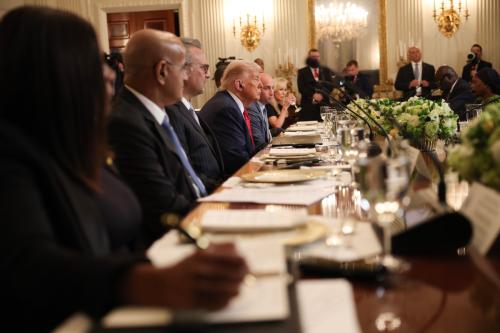Following a deadly uprising in Kyrgyzstan last week, President Kurmanbek Bakiyev fled Bishkek to his ancestral village in the south. Many viewed his administration as corrupt and authoritarian-ruled.
Although Bakiyev has not yet resigned, the victorious opposition installed an interim leader, Roza Otunbayeva, in hopes of unifying the country. Although Otunbayeva has a strong reputation as a democrat and free of corruption, there is no guarantee that last week’s revolution will lead to a democratic government—judging by the 2005 “Tulip Revolution,” led by now deposed Bakiyev. The risk of continued instability in Kyrgyzstan, and of even a civil war between the north and south, is high. Further unrest could severely damage the poor country’s economy, and it certainly will slow the recovery from the global recession.
The country’s instability will also affect Central Asia. While Kyrgyzstan is small, it shares borders with China, Kazakhstan, Tajikistan and Uzbekistan. In recent years, it has become a major transshipment center for goods from China to other Central Asian countries. And it acts as an important transit corridor for East-West and North-South trade, including one used by NATO to ship materials to Afghanistan from the Baltics.
Further, political violence in Kyrgyzstan could upset some of the neighboring Central Asian governments—particularly in Tajikistan, which experienced a bloody civil war in the 1990s. In the short term, the Kyrgyz uprising will likely lead the autocratic governments of its neighbors to clamp down even harder on internal opposition, real or perceived. In the long term, this may create more domestic popular dissatisfaction and a more fertile ground for radical Islamic forces. Initiatives to foster regional cooperation and economic integration, which are critical for the long-term development of Central Asia, will be hampered by the instability in Kyrgyzstan and by its neighbors’ efforts to insulate themselves from the Kyrgyz strife.
The American press has focused on the potential impact of the Kyrgyz upheaval on the U.S. military base at Manas, which is of considerable importance to the U.S. for its engagement in Afghanistan. The interim government indicated that it will not reopen existing agreements for now, but it has been less reassuring about the longer-term prospects. One of the factors behind this ambivalence is that the new Kyrgyz leadership, while still in opposition, felt slighted by the U.S., who was seen to support President Bakiyev in exchange for favorable treatment in negotiation of the Manas base. In contrast, the Russian government had criticized Bakiyev and his government for its corrupt and repressive governance and had apparently offered signals of support to the opposition. There is considerable irony in the Russians supporting ostensibly democratic forces, while the Americans supported an autocratic regime. It is a demonstration of the challenging task that the U.S. administration has in balancing the pursuit of its goals in Afghanistan while also supporting democracy and human rights in Central Asia.
Western media were quick to declare the Kyrgyz opposition’s victory as a foreign policy success for Moscow and, by implication, a failure for Washington. But whatever satisfaction Moscow may be reaping is likely to be short-lived—the seeds of unrest, and of a potential democratic revival, may prove to be a future challenge for the control-minded Russian government, while representing an opportunity for the U.S.
It is in America’s best interest to pursue low-key and steady diplomacy in Central Asia, and to see Kyrgyzstan succeed in taking a serious step toward democracy and stability. The United States should therefore support the efforts of U.N. Special Envoy Ján Kubiš to broker a peaceful transition toward democratic elections in Kyrgyzstan; and work to assure Chinese and Russian support, open or tacit, for this process and for the betterment of Kyrgyzstan’s people.
The Brookings Institution is committed to quality, independence, and impact.
We are supported by a diverse array of funders. In line with our values and policies, each Brookings publication represents the sole views of its author(s).



Commentary
An American Opportunity in Kyrgyzstan
April 14, 2010